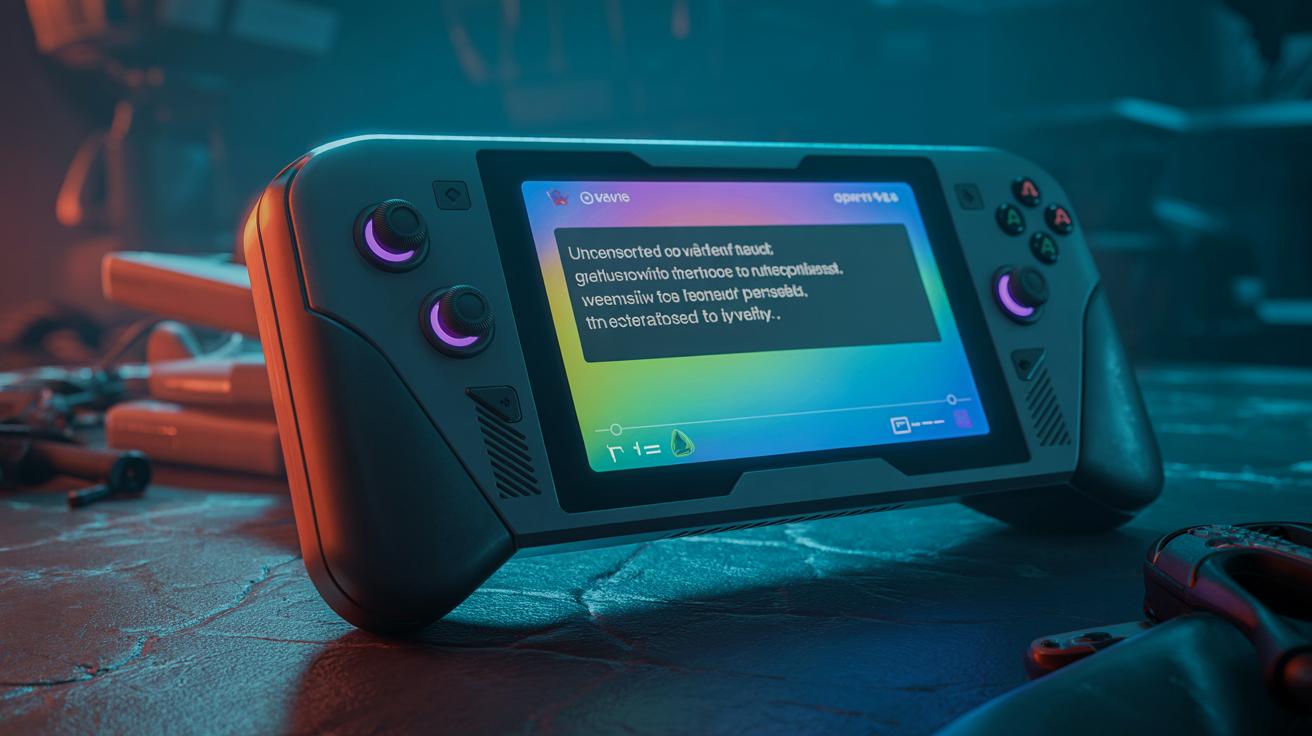What You Need to Know
- 🎮 Nintendo Switch 2 launches with the new GameChat feature, sparking widespread attention in the gaming community.
- 🗣️ GameChat’s advanced speech-to-text technology transcribes player conversations, including profanity, without censorship.
- ♿ Acclaimed as an “accessibility win,” the feature is praised for supporting disabled gamers by providing unfiltered communication.
- ⚖️ Raises debates about the balance between free expression and responsible content management in digital gaming spaces.
- 🚀 Nintendo’s approach may set a precedent for future gaming communication tools, influencing how companies handle content moderation.
Nintendo’s latest release, the Switch 2, is making waves in the gaming community, but not just for its impressive hardware upgrades and new game titles. At the center of the buzz is the GameChat feature—specifically, its ability to transcribe spoken words into text with remarkable accuracy, including profanity. This unexpected development has sparked a mix of reactions, ranging from surprise to delight, especially among advocates for accessibility in gaming. As the gaming world debates the implications of this feature, it’s clear that Nintendo may have inadvertently paved the way for a larger conversation about the balance between free speech and content moderation.
The Unfiltered Reality of GameChat
When Nintendo introduced GameChat for the Switch 2, it was marketed as a tool to enhance communication for players, particularly those with disabilities. The feature, using advanced speech-to-text technology, allows players to see their conversations transcribed on the screen in real-time. However, what caught users by surprise was the absence of a profanity filter. Players quickly discovered that the system transcribes f-bombs and other offensive words without censorship. This has led to a flurry of discussions on gaming forums and social media platforms. Some users express concern over the potential for misuse, especially in environments where children might be present. Others argue that this uncensored feature is a step forward in acknowledging adult gamers and promoting genuine interactions.
Accessibility: A Double-Edged Sword?
GameChat’s transcription feature is being lauded as an “accessibility win” by many in the gaming community, especially those advocating for disabled gamers. The ability to accurately transcribe spoken words, including swear words, is seen as a victory for inclusivity. Laura Kate Dale, a well-known game journalist and accessibility critic, praised the feature for not being censored by default, unlike other platforms. This development highlights a growing trend in the gaming industry to prioritize accessibility. However, it also raises questions about the responsibility of game developers in moderating content. While the feature provides an unfiltered experience, it also places the onus on players to manage their interactions responsibly.
Nintendo’s History with Content Moderation
Nintendo has long been known for its family-friendly image, often implementing strict content moderation policies across its platforms. The Switch 2’s GameChat feature seems to be a departure from this tradition. Earlier this year, Nintendo updated its “bad words” list, reflecting a more relaxed approach to content regulation. The company also joined the cross-industry effort known as the ‘Accessible Games Initiative’, signaling a commitment to inclusivity. This shift in strategy could be seen as an attempt to appeal to a broader audience, including more mature gamers. However, it also poses risks, as unchecked profanity could lead to negative experiences for users expecting a more controlled environment.
The Future of Gaming Communication
The introduction of GameChat’s unfiltered transcription feature may well influence the future of in-game communication across the industry. As more companies recognize the importance of accessibility, they may follow Nintendo’s lead in offering features that prioritize user experience over strict content control. This could result in a more open and inclusive gaming environment, where players are free to express themselves without the confines of censorship. However, it also necessitates a discussion on the ethical responsibilities of developers in creating safe spaces for all users. How will companies balance the need for open communication with the potential risks of unmoderated content?
As Nintendo navigates the mixed reactions to its GameChat feature, the gaming community is left to ponder the implications of this new era of communication. Will other companies adopt similar features, and if so, how will they handle the challenges that come with it? The conversation surrounding accessibility, free speech, and content moderation is far from over. As technology evolves, so too must our understanding of its impact on our interactions. What do you think is the right balance between free expression and responsible content management in gaming?
Did you like it?4.5/5 (20)






12 comments
alexis
Finally, a console that acknowledges we’re not all kids! Way to go, Nintendo!
lincoln
As a parent, I’m concerned. Can I restrict this feature for my kids?
Muffin
Wait, does this mean Nintendo is ditching their family-friendly image? 🤯
Colton1
Thank you for prioritizing accessibility over censorship. It’s about time!
jadeodyssey
I’m all for free speech, but isn’t there a risk of things getting out of hand?
Bentley
How will Nintendo address potential backlash from parents and guardians?
adeline
This is hilarious! I can’t wait to see how creative people get with this feature! 😂
Bailey0
Is there any option to turn off the uncensored transcription for those who prefer it?
EmilyWhisperwind
So, can we expect more adult-themed games now that profanity isn’t censored?
Oreo
Thank you Nintendo! Finally a step forward in inclusivity! Much appreciated. 😊
DanielEthereal
I love the idea of unfiltered communication, but what about kids playing these games? 🤔
Kennedy
Wow, this is a game-changer for accessibility! Does it mean we’ll see more features like this in future consoles?